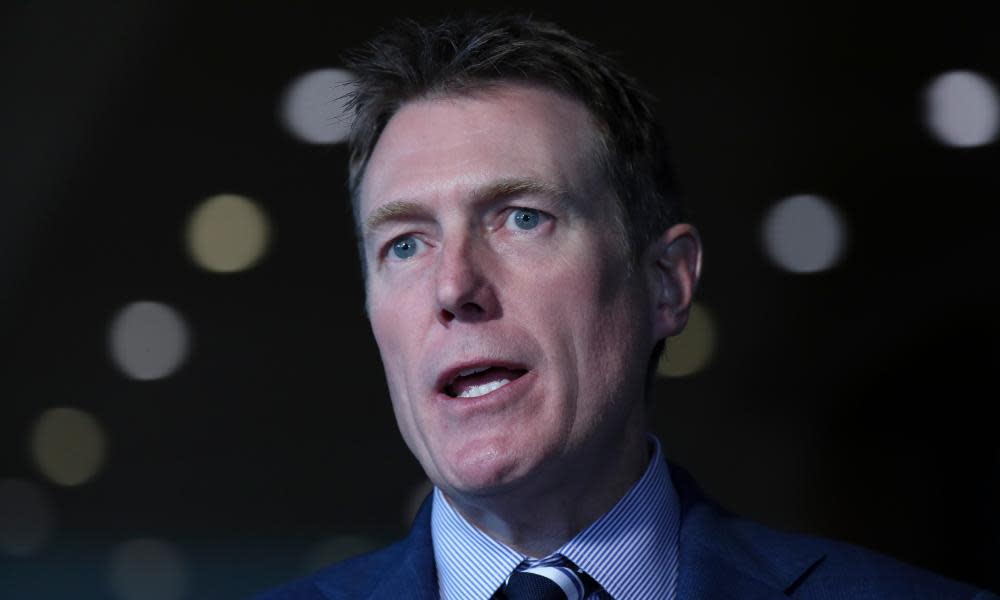Deal between big business and Australian unions sparks fury from employer groups

Big business and unions have struck a deal to prioritise union agreements in Australia’s workplace system, provoking an angry reaction from some employer groups.
A coalition of four employer groups will write to the attorney general, Christian Porter, warning him not to accept the deal struck between the Business Council of Australia and Australian Council of Trade Unions, in a major setback for plans to produce a consensus position on reform.
In June, the Morrison government set up five industrial relations roundtables to identify job creating reforms, promising to ditch union-busting legislation as a sign of good faith before the talks.
On Thursday, the Australian Financial Review first reported, and Guardian Australia has confirmed, that this week the BCA and ACTU presented a proposal to the enterprise bargaining group that prompted Master Builders of Australia chief executive, Denita Wawn, to temporarily walk out.
Related: Amazon denies it planned to spy on workers in Sydney to stop them unionising
Under the proposal, unions would agree to reforms to the “better off overall test” for registering a workplace pay deal whereby any new agreement would not necessarily mean that every employee had to be better off. The test is often strictly interpreted by the Fair Work Commission.
In return, the BCA chief executive, Jennifer Westacott, and ACTU secretary Sally McManus proposed that union-negotiated and approved agreements would be fast-tracked through the commission.
Representatives from the Australian Industry Group, the MBA, the Australian Chamber of Commerce and Industry, and the Australian Mines and Metals Association rejected the proposal.
That group of employer groups will write to Porter, arguing the side deal is discriminatory against non-union workers and their employers, infringes on freedom of association and creates pressure on employers to strike union agreements.
Their alternative proposal is for the commission to be required to approve agreements within 14 days if they are supported by a majority of workers, regardless of union involvement.
Porter played down the dispute, saying it was “no surprise to anyone that there would be different points of view on certain issues amongst participants of the working groups – if there wasn’t there’d be no need for this in the first place”.
“Indeed the differences of views are not just between unions and employer groups - they are sometimes inside those organisations,” he told Guardian Australia.
“This process is about finding as much common ground in as many areas as possible, and that is happening through these working groups.”
Treasurer Josh Frydenberg said it was a “a positive development” that employer groups and unions have come together for talks, but would refrain from further comments until after the finalisation of any deals.
Related: Payroll software could protect employers who commit accidental wage theft, ombudsman says
“If we get more flexibility in the labour market, we’ll be able to get more people back into work,” he said.
Despite the intention to keep talks confidential, there have already been multiple leaks.
Some employer participants have privately expressed the view the roundtable process has largely stalled, with the best hope now to develop a set of options for government to choose from, rather than achieving a grand bargain bringing unions into agreement on major reforms.
In July, Guardian Australia revealed KPMG was excluded from the roundtables for publishing a discussion paper proposing wide-ranging changes, including FWC powers to allow employers to cut hours and changes to the better off overall test that could water down protections on pay and conditions.
The small business and family enterprise ombudsman, Kate Carnell, who is not a participant, has revealed the roundtables have considered her call to provide employers who use approved payroll software to be considered “safe harbour” against prosecution and penalties for wage underpayment.

 Yahoo News
Yahoo News 
